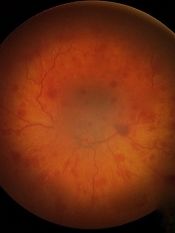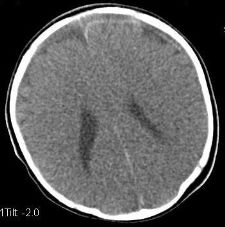As Michigan CPS attorneys, we have helped a large number of parents handle the difficult situation of hospital investigative interviews. Unfortunately, many parents submit to interviews with Forensic Doctors, CPS workers and police before they figure out that they desperately need an attorney. Our CPS trial lawyers defend parents throughout Michigan and can help guide you through the difficulty of being under investigation at the same time you have an injured child.
How to Know When you are Under Investigation
If your child is injured or comes to the emergency room with any type of sudden and severe medical condition, it is almost a certainty that the child will be evaluated for a possible abusive cause to the medical condition. The sooner the parents recognize that they are under investigation, the better. Parents typically come to the emergency room in a high state of anxiety because they have a child who is sick or injured. In that state of worry, or even panic, it is to be expected that they are not quick to conclude that they are the focus of an investigation. This actually makes building a case for court easier for the investigators. Here are some “red flags” that should trigger parents about their need to call an attorney.
- Any fracture in a non-ambulatory child (a child that does not get around on his or her own.) There is a simple thought process that most ER doctors and Child Protection Team doctors use: A child that is not moving around did not injure himself/herself. So, an infant with a fracture is always going to be evaluated for abuse; and the caretakers are suspect.
-
Repeated questioning about the cause of an injury. This is when doctors continue to press for more or better or different
explanations as to the cause of an injury. If doctors don’t accept
your explanation of events, you are right to be concerned. If they hear
your explanation and then tell you “that would not cause this injury,”
there is cause for further concern. The same concern is present when doctors
ask if you can think of anything that might have caused this injury.
Tip:
a parent should never guess, stretch, imagine or speculate about the cause
of an injury. If you don’t know, don’t guess.
- Specific Injuries.There is no comprehensive list of injuries that are deemed to be abusive. Doctors have advanced different thoughts at different times on just about every injury that shows up in child abuse investigations. However, there are patterns that we see in our cases that seem to cause doctors to jump to the conclusion that a child was abused. With any of these conditions or injuries, it is best to consult with an attorney before submitting to repeated questioning by anyone. Examples of specific injuries of concern would include:
-
Retinal Hemorrhages are often detected by a doctor simply looking in
 the eye. In cases of suspected child abuse, it is common to call in an
Ophthalmologist for retinal examination under sedation. Typically, if
they see any bleeding in the eye, they will use a “retcam”
or similar device to capture images of the hemorrhages. These will often
end up being used for evidence in a case against a parent or caretaker.
On the right, see image of a retinal hemorrhage taken by a RetCam.
the eye. In cases of suspected child abuse, it is common to call in an
Ophthalmologist for retinal examination under sedation. Typically, if
they see any bleeding in the eye, they will use a “retcam”
or similar device to capture images of the hemorrhages. These will often
end up being used for evidence in a case against a parent or caretaker.
On the right, see image of a retinal hemorrhage taken by a RetCam.
- Rib Fractures in a young child are going do be deemed suspicious for child abuse. Some Child Abuse Pediatricians would go so far as to say that a posterior (back) rib fracture can be “pathognomonic” or “specific” for abuse; meaning that there is no other possible explanation. This is not true, but when doctors make a statement like that to CPS, the case will end up in court.
- Other Fractures, depending on the doctor and the study, would list fractures of the humerus, radius, ulna or fibula as suggestive of abuse. In general, the theory often used is that long bone injuries require incredible force to fracture. Obviously, if the bones are fragile or underdeveloped that would not be a scientifically supportable view, but it is still commonly held.
-
 Subdural Hematomas, or bleeding inside of the skull are deemed by the medical community as
“red flags” for shaking a child or shaking a child plus impact
of some kind. Rational medical explanations are often overlooked until
raised by an attorney. On the right, see diagnostic image of infant subdural bleed.
Subdural Hematomas, or bleeding inside of the skull are deemed by the medical community as
“red flags” for shaking a child or shaking a child plus impact
of some kind. Rational medical explanations are often overlooked until
raised by an attorney. On the right, see diagnostic image of infant subdural bleed.
- Classic Metaphyseal Lesions or corner fractures have been a source of controversy for decades now, but many doctors hold on to the old idea that these bone injuries demonstrate abuse without any additional injuries to support the diagnosis.
- Burns. When a child arrive at the ER with a severe burn, the likelihood is that an investigation will commence. Burns can be horrible injuries and some doctors are very quick to point fingers at the parents or caregivers when they occur.
- Undiagnosed Illness. Parents seeking help for what seems like an illusive undiagnosed illness need to be very careful. We have seen plenty of cases where doctors could not find any cause for an illness and the parents continued to press for a medical explanation. For parents being looked at for Munchausen Syndrome type accusations, there are some special precautions to consider that are beyond the scope of this article and are best considered with the attorney who is actually working with the family. Tip: If your child has a “red flag” injury, get an attorney on the phone quickly who understands the legal implications of the injury.
- Questioning by the Hospital Social Worker: Usually the hospital social worker is a very nice person. She may approach you just to “see if you need anything.” However, your child’s medical chart will likely have a comprehensive social work assessment that will include her version of your statements. Multiple statements taken when questioning nervous and tired parents, by various hospital workers who are going to make their report from memory after the interview, is always a recipe for disaster. Tip: You don’t need to tell the same story over and over. You can politely say, “I am very tired and I have told what happened several times already. Could you please just read the chart?”
- Questioning by CPS: If CPS is in the hospital and talking to you it is probably the case that someone filed a DHS 3200 form indicating that they suspect abuse or neglect. Tip:A CPS worker is from the government so you have constitutional rights, including the right to remain silent. You should talk to you attorney before you decide whether or not to talk to CPS about your child’s injuries.
- Questioning by Police: If the police are there, someone is under investigation. Police investigate crimes. The crime of Child Abuse 1st degree is punishable by up to life in prison. That should be enough reason to call an attorney and get a quick consult.
Cronkright Law attorneys are well qualified CPS defense lawyers who help falsely accused parents on a daily basis. We work hard to keep families together. We have helped parents in Oakland County, Berrien county, St. Joseph County, Clinton County, Tuscola County, Muskegon County and virtually everywhere else in Michigan’s Lower Peninsula. Our headquarters are in Lansing and we have counsel in other locations in Michigan. If we can help you with a difficult case, we are prepared to commit the time, attention and expertise that your family needs to the task. Call 24/7 or use the contact form. We look forward to hearing from you.

